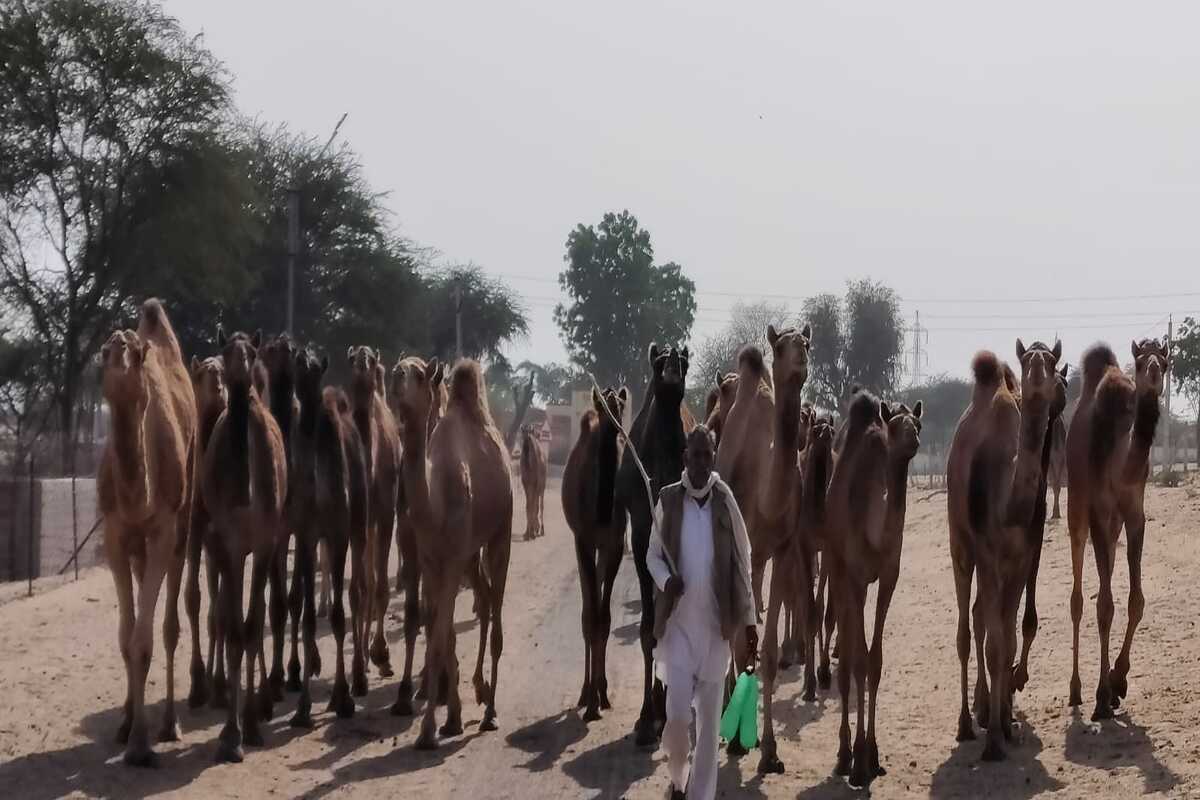Pushkar mela: Camel rearers in Rajasthan are furious against the state government’s decision to go without ‘Pashu Mela’ (cattle fair) during this year’s Pushkar Fair. The prohibition is imposed in view of the prevalent Lumpy Skin Disease in bovines and Glanders in horses.
Camel rides are the main attraction at the famous annual Pushkar Fair for both domestic and overseas tourists. The fair, to be held in the holy month of ‘kartik’, will commence November 1.
Advertisement
For the last two years, the Pushkar Fair could not be held due to the covid-19 pandemic.
Camel Safari and Horse Safari are one of the splendid enjoyments for foreigners who watch the sand dunes of desert in the background of sunset.
The Government of Rajasthan has recently directed the Ajmer district administration to notify the cancellation of ‘pashu mela’ (cattle fair) on the scheduled dates of November 1-10 next month.
“Except for the cattle fair, the religious and cultural events will be held and the fair preparations are in full swing in Pushkar, a famous tourist place for pushkar lake and the sole Brahma temple”, Ramesh Borana, vice-chairman of state Fair Authority, told SNS.
Meanwhile, Hanwant Singh, Director of Lokhit Pashu-Palak Sansthan, said it was an injustice to the camel rearers to bar them from the annual fair where they could do some trading. The cattle can be prohibited from the fair as the threat of the Lumpy Skin Disease has not yet receded.
“Already Rajasthan’s camel species are in danger and its plight is getting serious owing to a legislation passed by the previous BJP government in 2015. Camel breeders and NGOs are demanding repeal of the Rajasthan Camel (Prohibition of Slaughter and Regulation of Temporary Migration or Export) Act, 2015 so that they could continue their trade in other states and conserve its population,” Singh said while interacting with SNS on Wednesday.
The Rajasthan Camel (Prohibition of Slaughter and Regulation of Temporary Migration or Export) Act, 2015 was enacted to continue the trade of camels in other states and conserve their population.
“As per the government’s records of 2019, the camel population declined by 34 percent after the said Act has been effected. As against 3.24 lakh camels in the state in 2014, its population in 2019 stood at 2.14 lakh. But our NGO’s record shows that the population declined by 60 percent,” Singh said.
Last year in September, taking a suo motu action, a division bench of Rajasthan High Court issued a notice to the state government on sharp decline in the population of camel (declared as State Animal) by at least 34 percent in the fallout of Rajasthan Camel (Prohibition of Slaughter and Regulation of Temporary Migration or Export) Act, 2015.
The case is still pending in the court. On the other hand the state government has referred the matter to a cabinet sub-committee for taking a final review and suggestions on the repeal of the act, Hanwant said, adding that due to this delay and on the pretext of Lumpy Skin Disease in cows, the government has cancelled next month’s ‘Pushkar Fair in Ajmer’ devoted to cattles and other veterinary animals.
According to a letter from the NGO, before the said Act, farmers used to come to Rajasthan’s camel fares from Punjab, Harayan, Uttar Pradesh and Himachal Pradesh and camel calves of 6 to 8 months were used to be sold at Rs 10,000 to Rs.15,000. Now, after the enactment of the Act the sale and migration of camels are completely prohibited, the price has come to just Rs 500, and other related businesses have been seriously hampered.
Defending the state government’s order to bar the cattle fair from Pushkar Fair programmes, Dr. N M Singh, Additional Director of the State Animal Husbandry Department (Health) said, “At least 75,000 bovine species have perished in Rajasthan and over 16 lakh were afflicted as of now due to LSD. And due to Glanders five horses have died in the state so far. How could the state government (animal husbandry) risk the lives of the animals allowing them at the Pushkar fair?”









